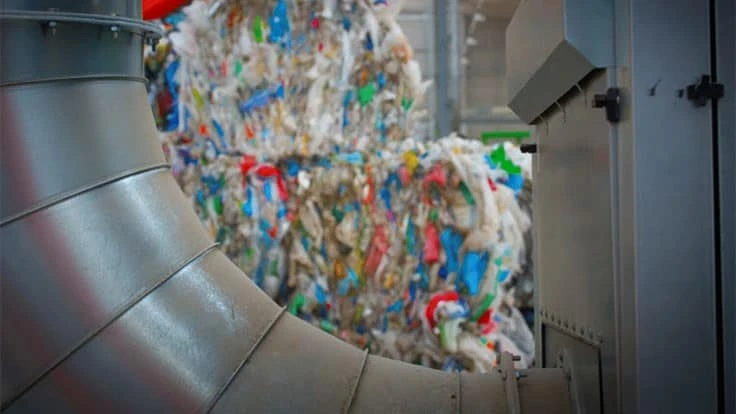
Photo from Recycling Today archive
The Association of Plastic Recyclers (APR), Washington, has formed the APR Chemical Recycling Research Working Group with the goal of identifying the steps needed to enable chemical recycling to complement traditional recycling technologies. The group will also find ways to successfully integrate chemical recycling into the overall recycling infrastructure.
“Chemical recycling was developed more than 50 years ago but has recently received renewed scrutiny as well as increased regulatory action as companies look for ways to increase plastics recycling to achieve their consumer recycling commitments,” says Steve Alexander, APR president and CEO. “As the voice of plastics recycling, APR has a responsibility to clarify for the industry, policymakers and consumers the various aspects of chemical recycling including issues regarding supply, economics and its impact on the environment.”
The group will be co-chaired by industry veterans Carl Williams, technical associate at Eastman, and Greg Janson, president and CEO of Granite Peak Plastics.
“The APR supports the opportunity to accelerate a circular economy with plastics and reduce dependency on nonrenewable resources, through the intersection of mechanical and chemical recycling technologies,” Williams says. “Technology improvement and investment across the entire recycling value chain, including mechanical and chemical recycling, will reduce plastic waste and provide the most sustainable materials to the industry.”
The APR Chemical Recycling Research Working Group has the following goals:
- detailing steps to ensure chemical recycling does not result in packaging manufacturers disregarding design for recycling guidelines;
- identify material that may be better suited for chemical vs. mechanical recycling;
- review the economic feasibility of chemical recycling;
- research sortation, transportation, location and other logistical challenges relative to the stated volume requirements of chemical recycling;
- develop model bale specifications; and
- identify material applications.
“Design for recycling is and will continue to be essential for a circular economy. Chemical recycling should not result in packaging manufacturers disregarding design for recycling guidelines,” Janson says. “Chemical recycling has the potential to expand opportunities for recycling of materials that are not recycled by mechanical processes today.”
Latest from Recycling Today
- BMW Group, Encory launch 'direct recycling’ of batteries
- Loom Carbon, RTI International partner to scale textile recycling technology
- Goodwill Industries of West Michigan, American Glass Mosaics partner to divert glass from landfill
- CARI forms federal advocacy partnership
- Monthly packaging papers shipments down in November
- STEEL Act aims to enhance trade enforcement to prevent dumping of steel in the US
- San Francisco schools introduce compostable lunch trays
- Aduro graduates from Shell GameChanger program





